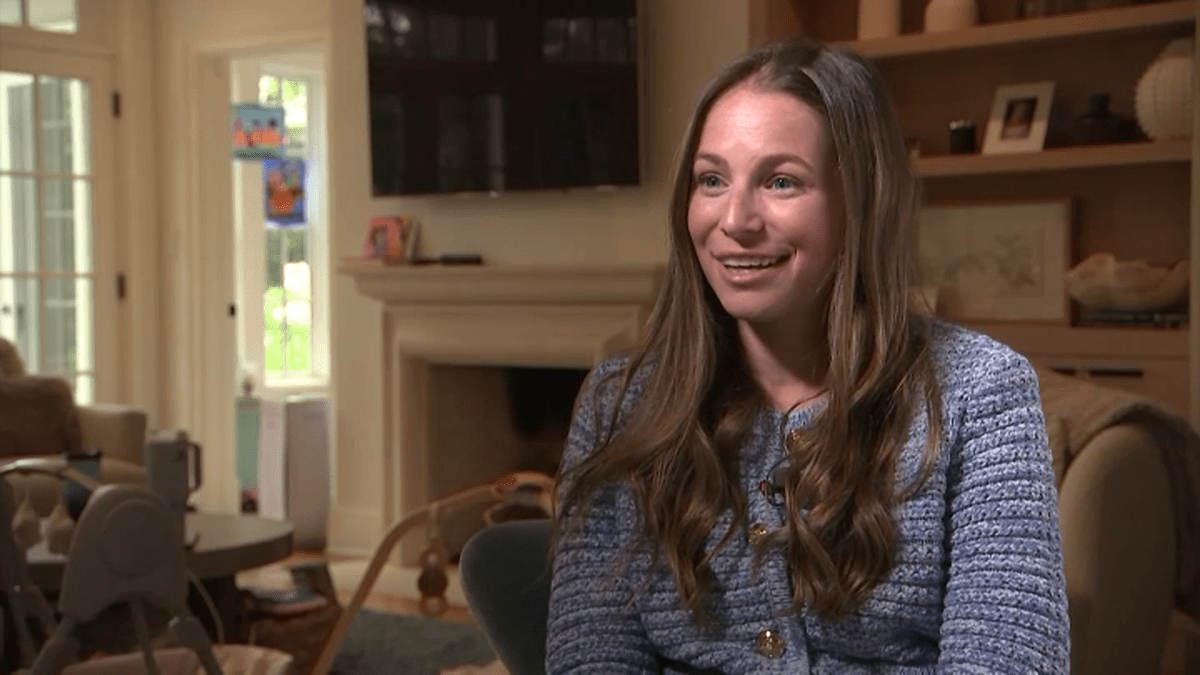A north suburban Chicago woman is sharing the story of a rare complication that occurred during her daughter’s birth to help raise awareness about what happened.
The delivery was going as planned when Rachel Storch was giving birth to her daughter, Sydney, in April, when suddenly Storch she told medical staff she couldn’t breathe.
She was experiencing an amniotic fluid embolism.
“When she started pushing, the baby was just about to be delivered, and she told us that she doesn’t feel well. And then immediately after that, she lost consciousness,” said Nadia Swormstedt, a labor and delivery nurse at Endeavor Health Evanston Hospital.
“They were able to get the baby out, really, just as all of her circulation started to fail,” said Dr. David Ouyang, a maternal fetal medicine specialist who was working in an adjacent operating room at the time.
Once doctors stepped in to deliver Sydney safely, Swormstedt and the rest of the medical team began taking turns performing CPR on Storch.
“That didn’t work well enough, and you needed to incorporate this tool called ECMO, which is essentially a way of bypassing the heart and lungs and using the machines to do the work of the heart and lungs,” Ouyang said.
Storch spent two weeks in the intensive care unit, the ordeal brought on by an amniotic fluid embolism.
“It’s likely caused when amniotic fluid enters into the patient’s circulation and really triggers an overreaction of that patient’s immune response, kind of like a severe allergic reaction,” Ouyang said.
Ouyang said it’s not uncommon for amniotic fluid to enter the mother’s bloodstream.
“We don’t understand fully why some patients react in the way they do. Just because amniotic fluid gets into somebody’s circulation doesn’t mean that everybody will get an amniotic fluid embolism,” Ouyang said.
Amniotic fluid embolisms are a challenge for labor and delivery teams because there is no way to predict which women will have the severe reaction, and there are no warning signs.
“As much as it is unpredictable and unpreventable, it is very rare. You know, we estimated it occurs in about one in every 30,000 deliveries,” Ouyang said.
“I was talking to someone and said I was the luckiest of the unlucky,” Storch said.
While some AFE sufferers don’t survive, Storch recovered with the help of medications and physical therapy.
Her daughter, Sydney, a miracle in more ways than one.
“I was told I wasn’t able to carry again after my first daughter, Olivia, and so we moved forward with a surrogate. And the week we were transferring to the surrogate, I found out I was pregnant,” said Storch.
Two weeks after Sydney was born, her sister, Remy, arrived via surrogate. Now all together in their Glencoe home, the Storch family is settling in as a party of five.
“The reason I’m here is because the doctors responded so quickly and knew exactly what they were doing, which I’m very fortunate for,” Storch said.
“I’ve just been thinking about her every single day,” said Swormstedt. “Knowing now that she’s at home with her two kids, three kids, actually she has three, makes me so incredibly happy.”
